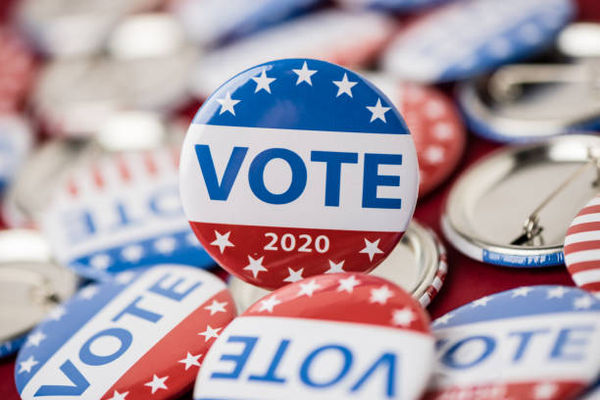From Oct. 29 to Nov. 3, The Paladin surveyed a non-random sample of 260 students about their opinions and intentions regarding the Nov. 3 election.
Consistent with our previous findings, 97% of respondents who were eligible to vote said that they intended to vote in this election. While the final turnout will not be quite that high, the enthusiasm surrounding this election is evident: 75% described this presidential election as “very important” relative to past ones.
Of the students who intended to vote, 68% planned on doing so by mail. A substantial portion of those mail-in ballots are likely absentee. Students were registered to vote in 25 states, mostly outside of South Carolina:
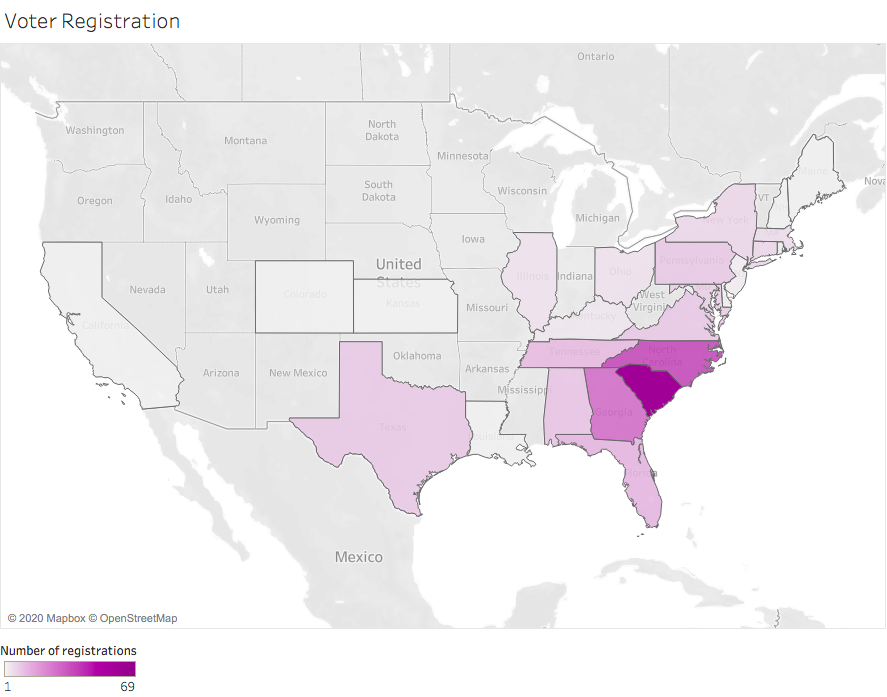
Overall, 27% of our sample planned on voting for Donald Trump and 63% planned on voting for Joe Biden — consistent with the results of our previous survey. In addition to the expected gender difference in support for Biden and Trump — with men less supportive of Biden and more supportive of Trump compared to women — we also found a difference in third-party votes. In our sample of 74 males, 14% planned on voting for a third-party candidate. Among females, that number was only 3%.
On the national scale, men are more conservative than women, and Furman is no different. Among male respondents, 47% identified as Republicans and 20% as Democrats. Among females, it is the opposite: 41% identified as Democrats and 24% as Republicans. There may be a disproportionate number of conservative men at Furman who identify as Republican but refuse to vote for Donald Trump specifically, which would help explain the gender gap in the third-party vote.
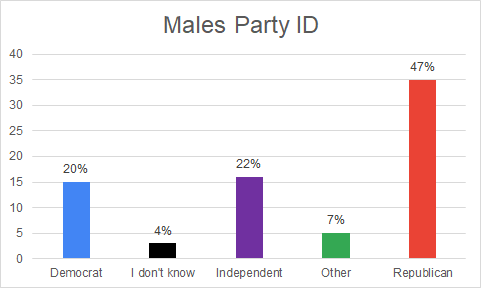
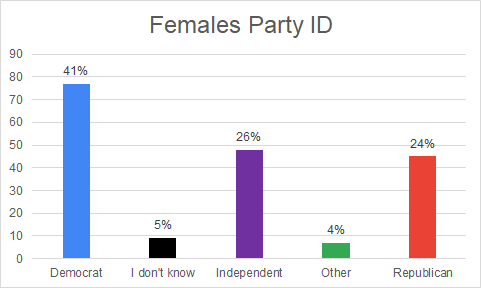
Donald Trump’s unique unpopularity is also reflected by the fact that only 77% of Republicans in our sample planned on voting for him. For comparison, 99% of Democrats planned on voting for Joe Biden. The independents in our sample also leaned heavily towards Biden: 72% planned to vote for him and only 13% for Trump.
A presidential vote only scratches the surface of students’ often complex political opinions, so the survey also asked students what issues were most important to them. The most common answer was the economy, followed by racial equality, gender equality, and COVID-19. For something that has impacted our community (and every community) in profound ways, it is somewhat surprising to see COVID-19 so far down the list. That said, college students in general may be less worried about the public health implications of COVID-19 and more concerned about its impact on the economy as they prepare to enter the workforce.
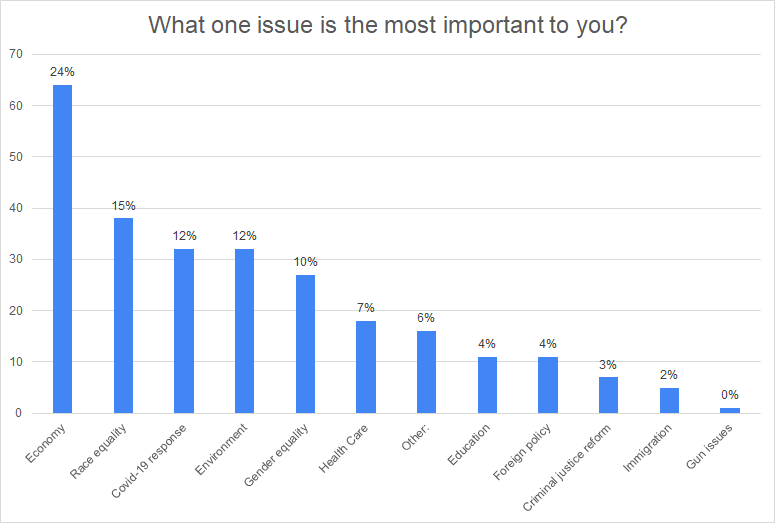
There are also stark differences in issue importance by party identification. Republicans overwhelmingly rate the economy as their top issue, while Democrats are most concerned about racial equality and COVID-19. Independents were fairly evenly split.
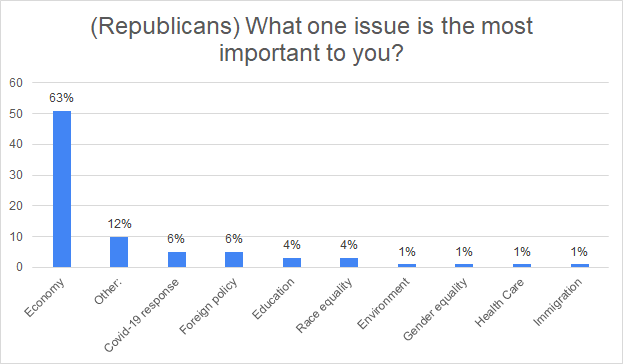
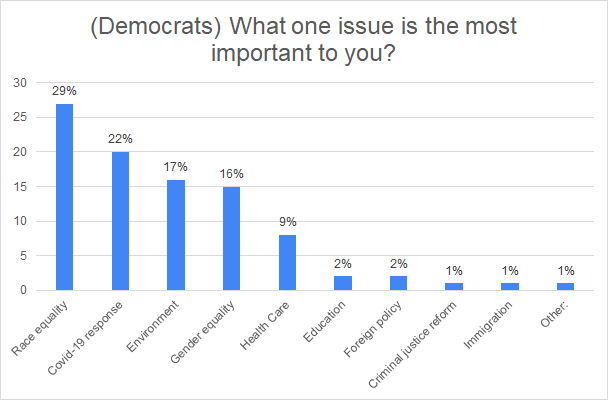
Structural features of the American political system, such as single-member, plurality-rule districts, favor a two-party system. Like many Americans, a majority of students oppose this system, even though only a small minority end up voting for third-party candidates.
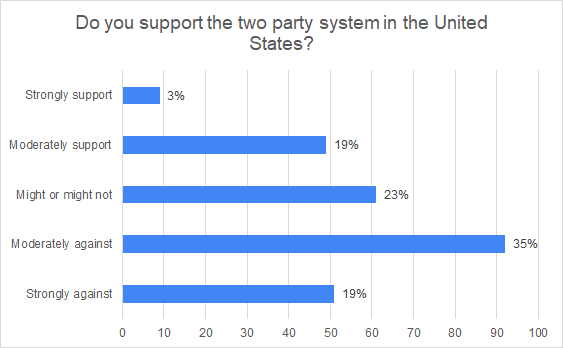
Finally, a significant plurality of respondents (43%) chose social media as the platform they most utilize for political news. “Social media” is a rather vague term. Following a reputable news organization on Twitter could be considered social media, as could only getting news from your friends’ Instagram stories. At the end of the day, Furman students’ media diets may not be awful, but they could probably use some improvement.
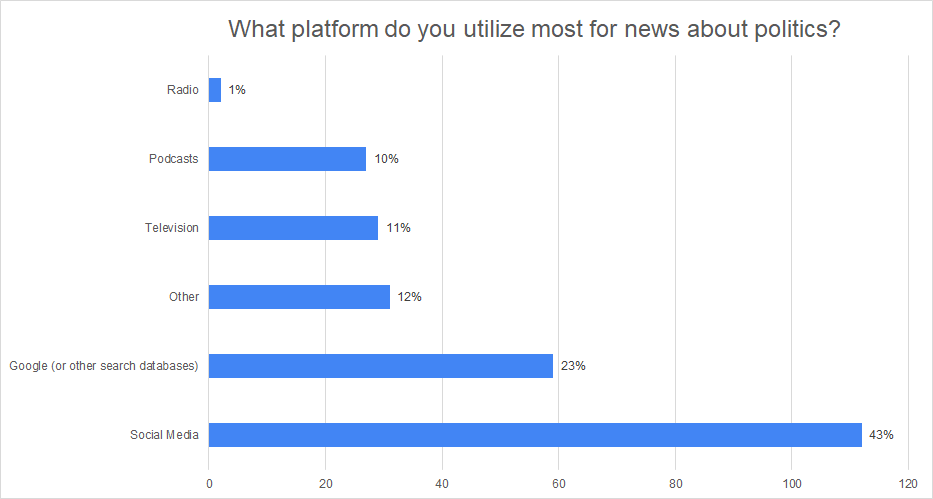
Healthy civic life relies on constructive engagement with shared institutions. The government is one such institution. So is the press. These institutions have often let our generation down, and it can be tempting to allow our disappointment to spiral into disillusionment and disengagement. By and large, Furman students have not succumbed to that temptation. Simply participating in these shared institutions — making our voices heard and listening to others — goes a long way towards achieving lasting change for the common good. The Paladin applauds the hundreds of Furman students who have already voted in what promises to be a high-turnout election, and we are grateful to our readers for joining us as we seek to illuminate students’ perspectives on issues facing our community.
